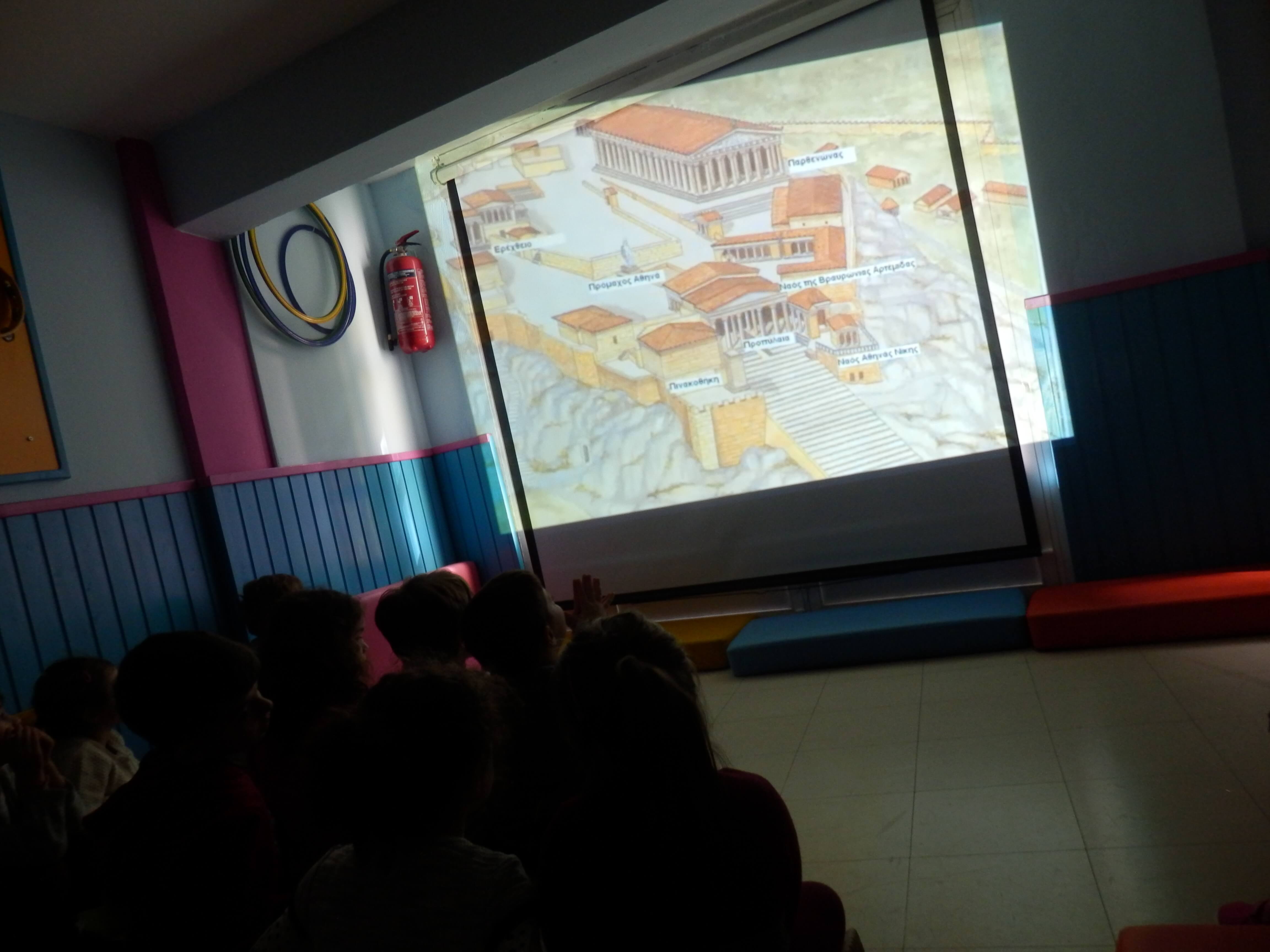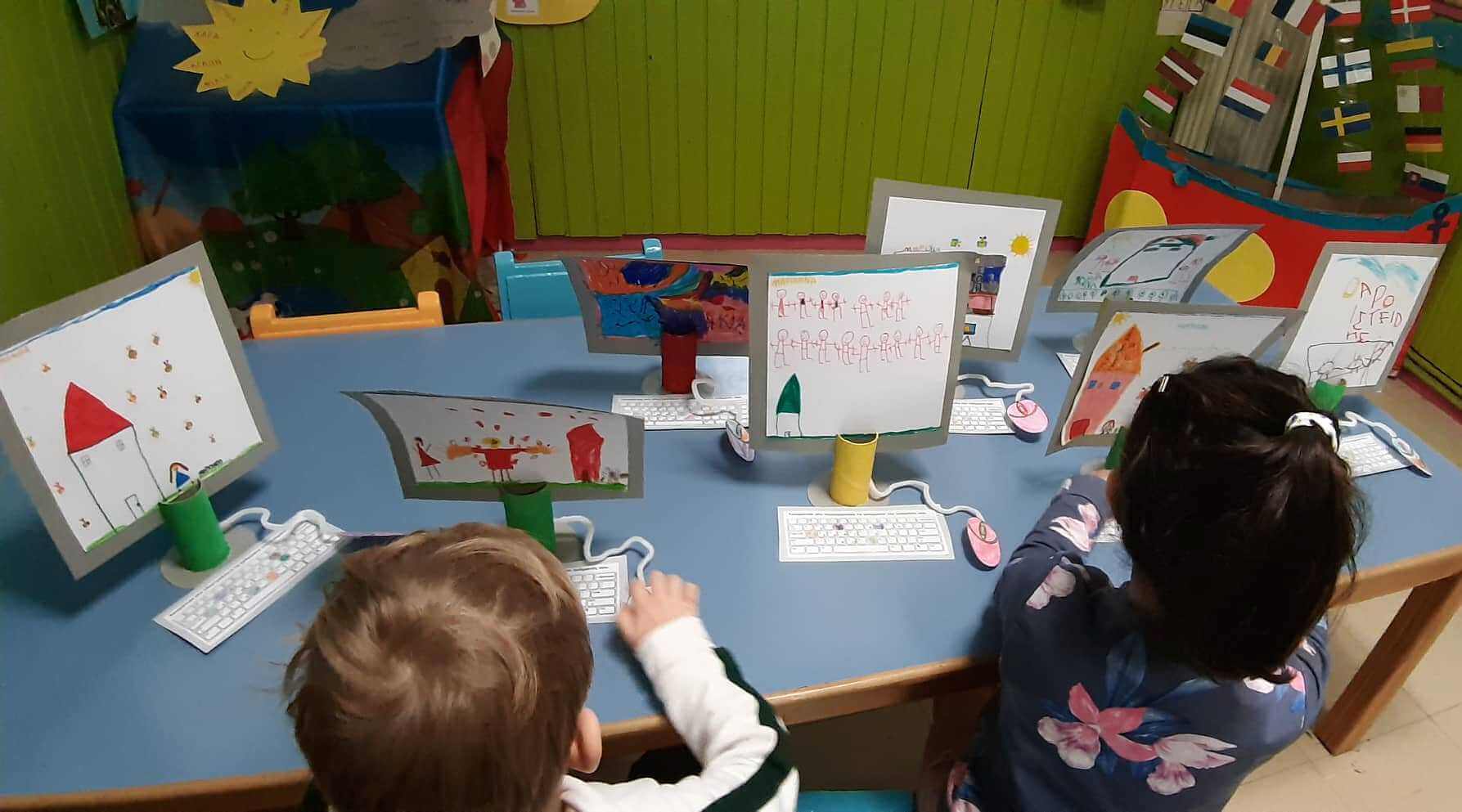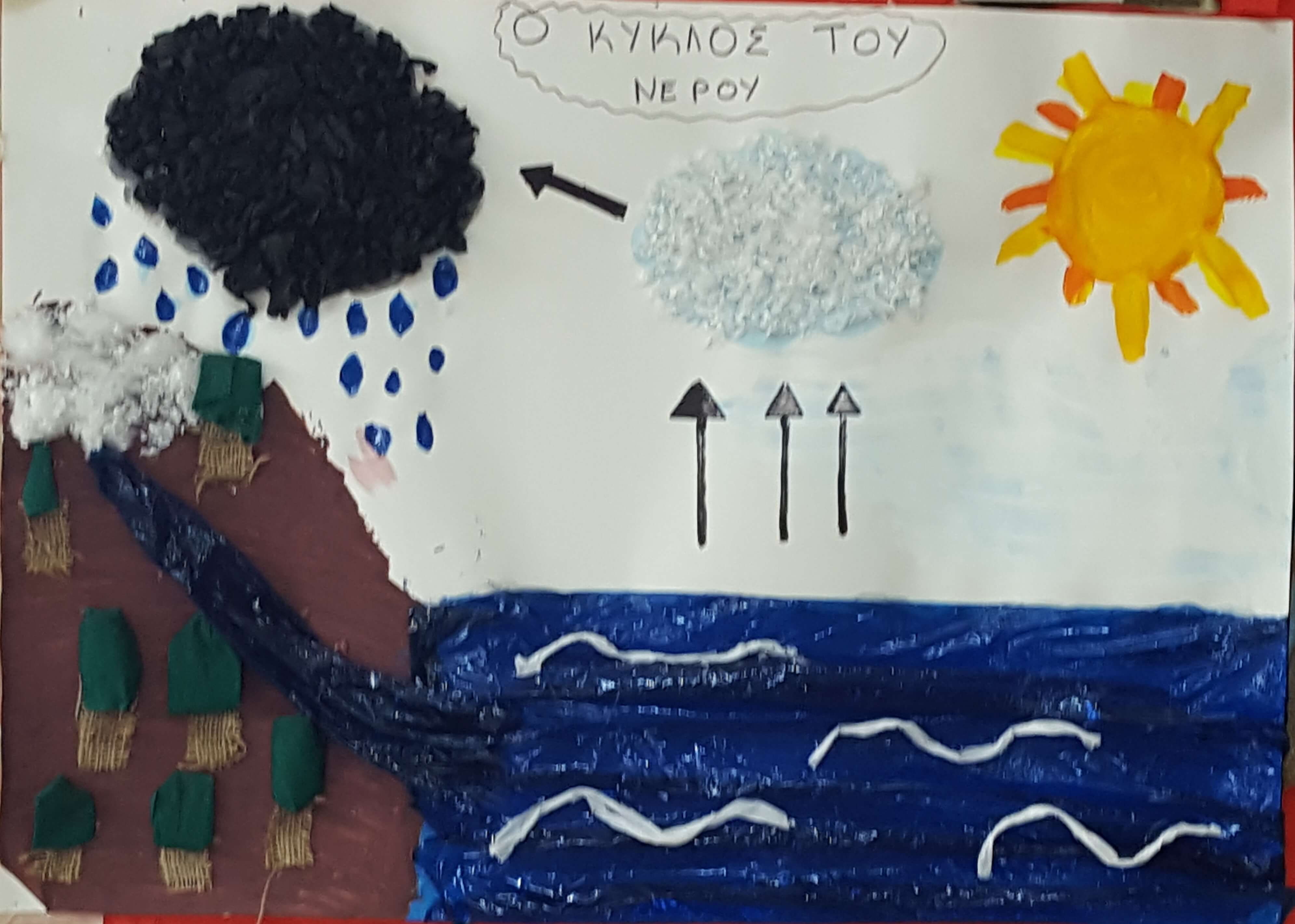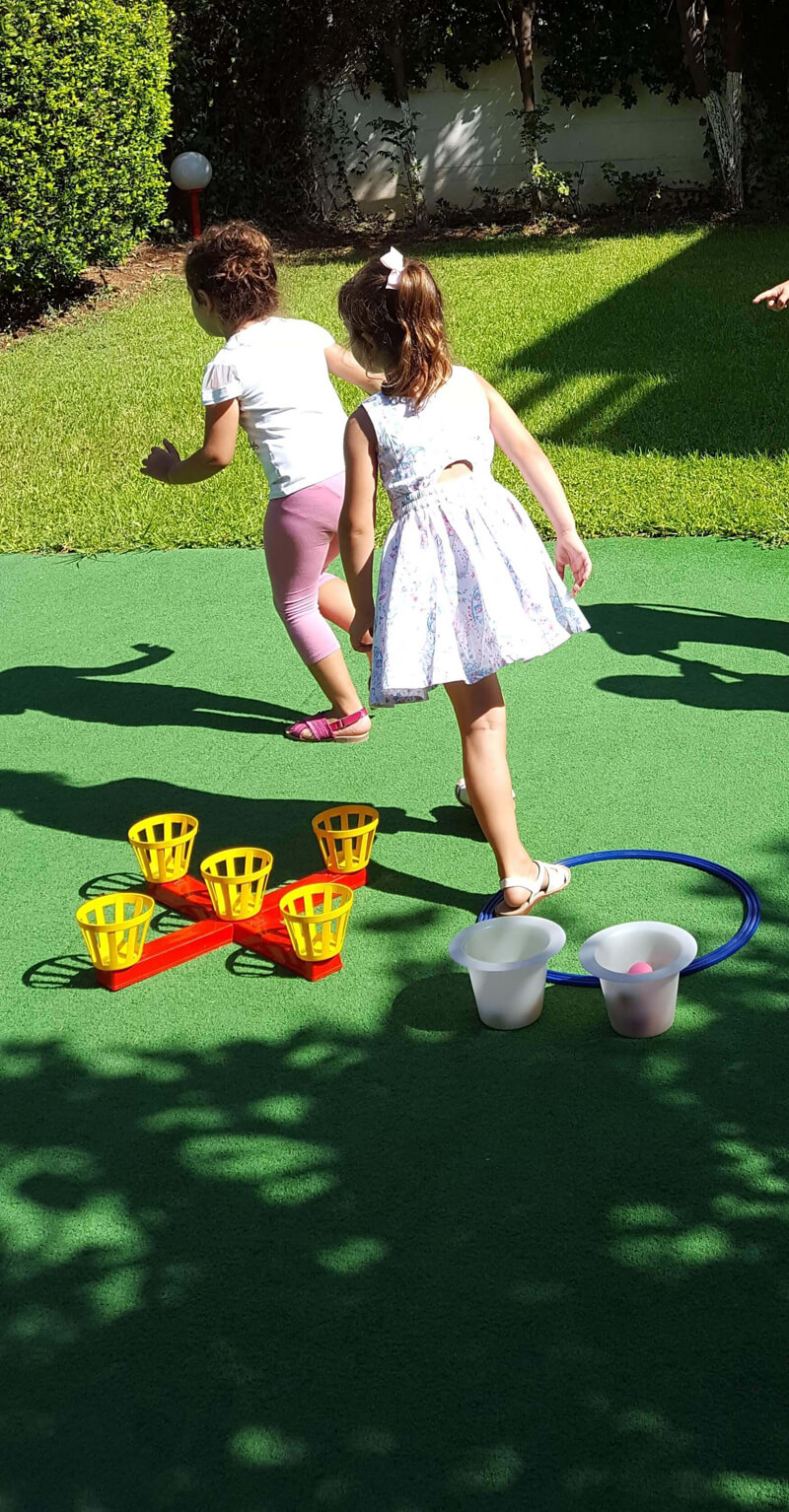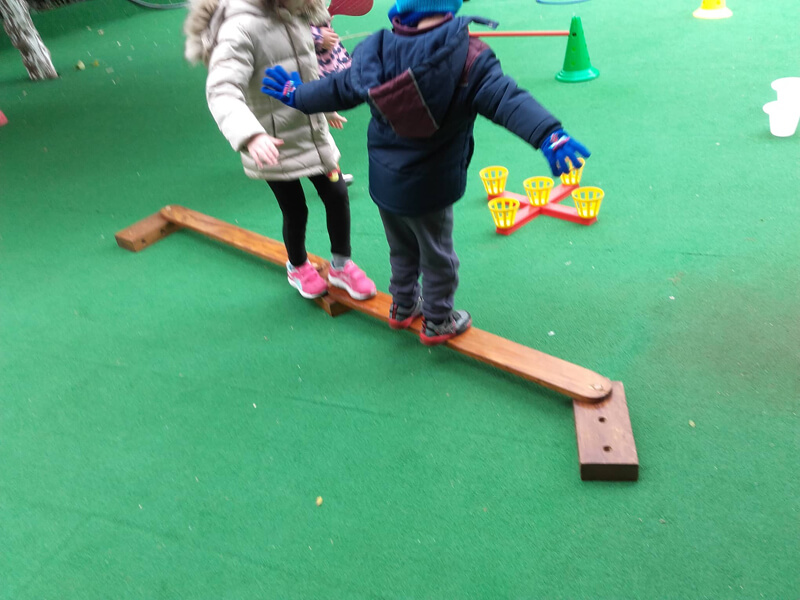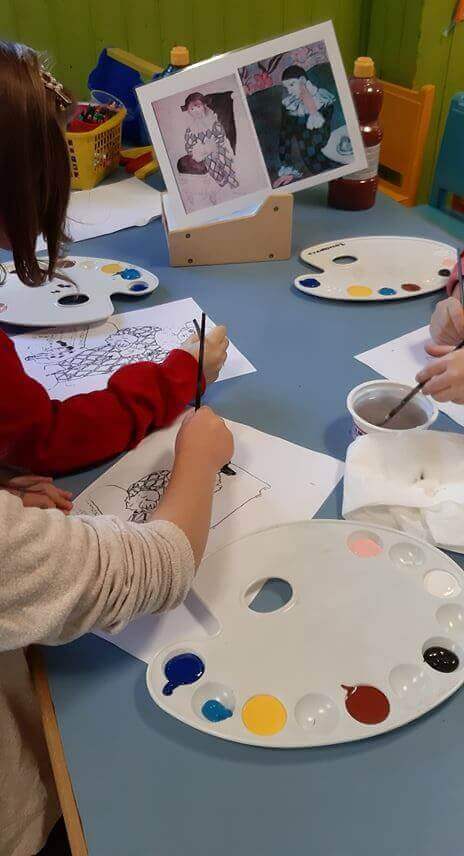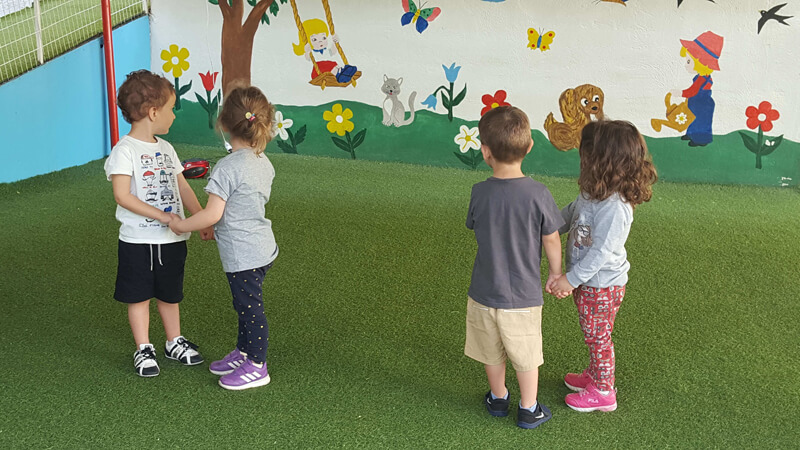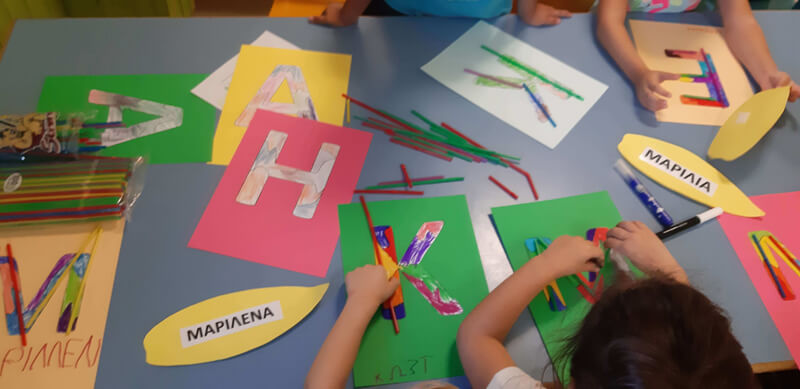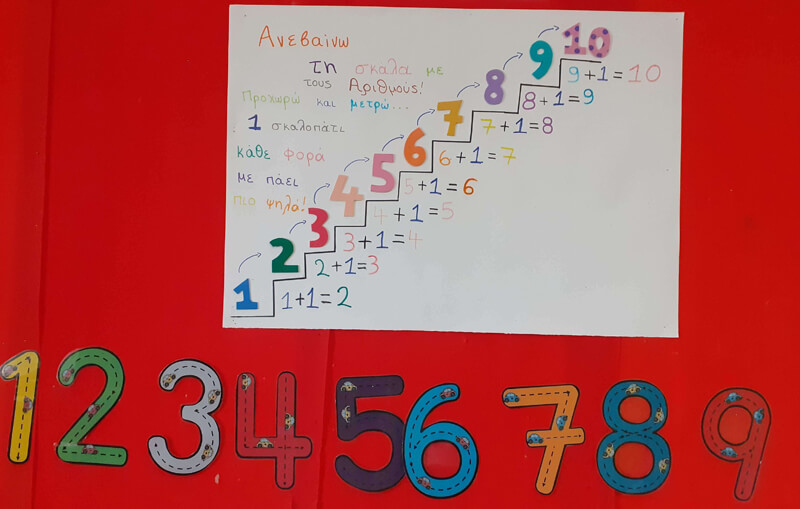NEWSLETTER_SUBTITLE
Educational Programs
EDUCATIONAL PROGRAM
The educational programs in "Margarita" are designed based on the scientific data of Pedagogy, aiming at supporting the learning and social development of children, as well as their comprehensive personal development. Enriched with our many years of experience, they are applied by our highly trained teaching staff, in combination with the guidance and cooperation of the management.
The continuous evaluation and redesign of educational programs, as well as the utilization of innovative teaching methods, contribute to the quality upgrade of our educational work, ensuring the successful approach of our goals.
In each department, an appropriately designed educational program is developed, adapted to the special needs of each age group of children. During the implementation of the educational program, experiential activities are carried out in a playful form, designed with respect to the individual abilities of the children, emphasizing their interests.
The central goal of each of our actions is to stimulate the interest of our young students, in order to ensure their active participation in the learning process. At the same time, we expect the strengthening of the perceptual process of each child, strengthening his self-esteem and encouraging the acquisition of new skills.
Key areas of development of our educational program:
-
Sector of psychomotor development
-
Aesthetic development sector
-
Sector of social, emotional & moral development
-
Sector of mental & cognitive development
-
Language development sector
-
Department of Mathematical Thinking
The daily pedagogical program is enriched with a variety of educational activities and innovative educational programs, adapted to each age group.
-
Music-Motor & Psychomotor Education
-
Music Education
-
Theatrical Play & Theatrical Education
-
Literacy Actions - Literature
-
Art Workshops - Aesthetic Education
-
Rhythmic Gymnastics - Dance
-
Emotional Education
-
Environmental education
-
Intercultural Education
-
Cultural tradition & cultural heritage
English
SECTOR OF PSYCHOMOTIC DEVELOPMENT
This area of development is related to the child's ability to perceive the world around him, his spatio-temporal orientation, the concept of rhythm and mobility in combination with the knowledge of his body, the control and coordination of movements of.
Its importance lies in the fact that it offers the child liberation, relaxation, dexterity and self-perception as a point of reference in the space around him.
Through properly designed and targeted psychomotor development activities, the cultivation of self-confidence and the stimulation of self-esteem are attempted, with the main aim of ensuring the mental stability and balance of children. This process of empowering the child contributes decisively to his smooth learning development.
AESTHETIC DEVELOPMENT AREA
Art is an important part of our lives, as engaging in its various forms offers us many opportunities for creative thinking, personal expression - communication and emotional awakening.
With the activities implemented in this context, we seek to activate the physical abilities of children, to activate their imagination, to cultivate their creativity, while encouraging expression and experimentation with a variety of materials and techniques. At the same time, they develop an interest in artistic creation and enhance the desire to participate in artistic activities.
Through dance, dramatic art, puppetry, art, music, children develop their aesthetic perception, express and discover deep mental and spiritual thoughts and concerns, while interacting creatively with others.
>SECTOR OF SOCIAL-EMOTIONAL-ETHICAL DEVELOPMENT
This area of development involves cultivating all of these factors related to the child's perception of the environment around him (natural, man-made) and the rules that govern social behavior, shaping interpersonal relationships with others.
Basic goals are the child's understanding of the environment, building relationships, coexisting with others, accepting and respecting diversity, resolving conflicts, recognizing and managing emotions, strengthening social skills, socializing , the adoption of positive attitudes and values of life, as well as the strengthening of the moral perception of children.
Through this social process children acquire better self-perception and self-image, learn to cooperate and develop their empathy, apply rules, control and determine their behavior, distinguishing right and wrong, acceptable and not acceptable.
The contribution of the family environment is crucial for the most effective education around the child's emotional and social development.
SECTOR OF MENTAL-COGNITIVE DEVELOPMENT
The field of cognitive development concerns all the cognitive and mental processes that take place, in the various stages of the child's development, during the process of acquiring knowledge. It focuses on the way in which children perceive and interpret the faces, things and situations around them, through processes of observation, correlation, analysis and synthesis of their characteristics.
In a learning environment rich in stimuli, children interact, gain new experiences and achieve the gradual construction of knowledge. Our great effort in this field is for the child to approach knowledge, not through the barren reproduction and transmission of information, but to explore, to search, to discover on his own in the space he is in, utilizing the stimuli around him.
Language development
Through our school curricula, emphasis is placed on language development and the cultivation of mathematical thinking.
More specifically, through a variety of activities, the aim is to improve children's oral speech, to understand the relationship between oral and written speech, as well as the gradual decoding and acquisition of written speech. The cultivation of fine motor skills is an important parameter of this process, as it is the basis for facilitating the written display and reproduction of symbols.
Development of mathematical thinking
Through selected and interesting activities implemented in the educational programs of our departments, children are given opportunities to detect and apply mathematics in their daily lives, to approach and understand basic mathematical concepts, to perform simple mathematical operations, to process quantities, relationships, shapes, numbers, to understand spatio-temporal relationships, to ponder and discover possible solutions.
In this way, children are encouraged for their perceptual acquisitions and with the appropriate manipulations they can organize and utilize them, thus laying the foundations of their mathematical thinking.

